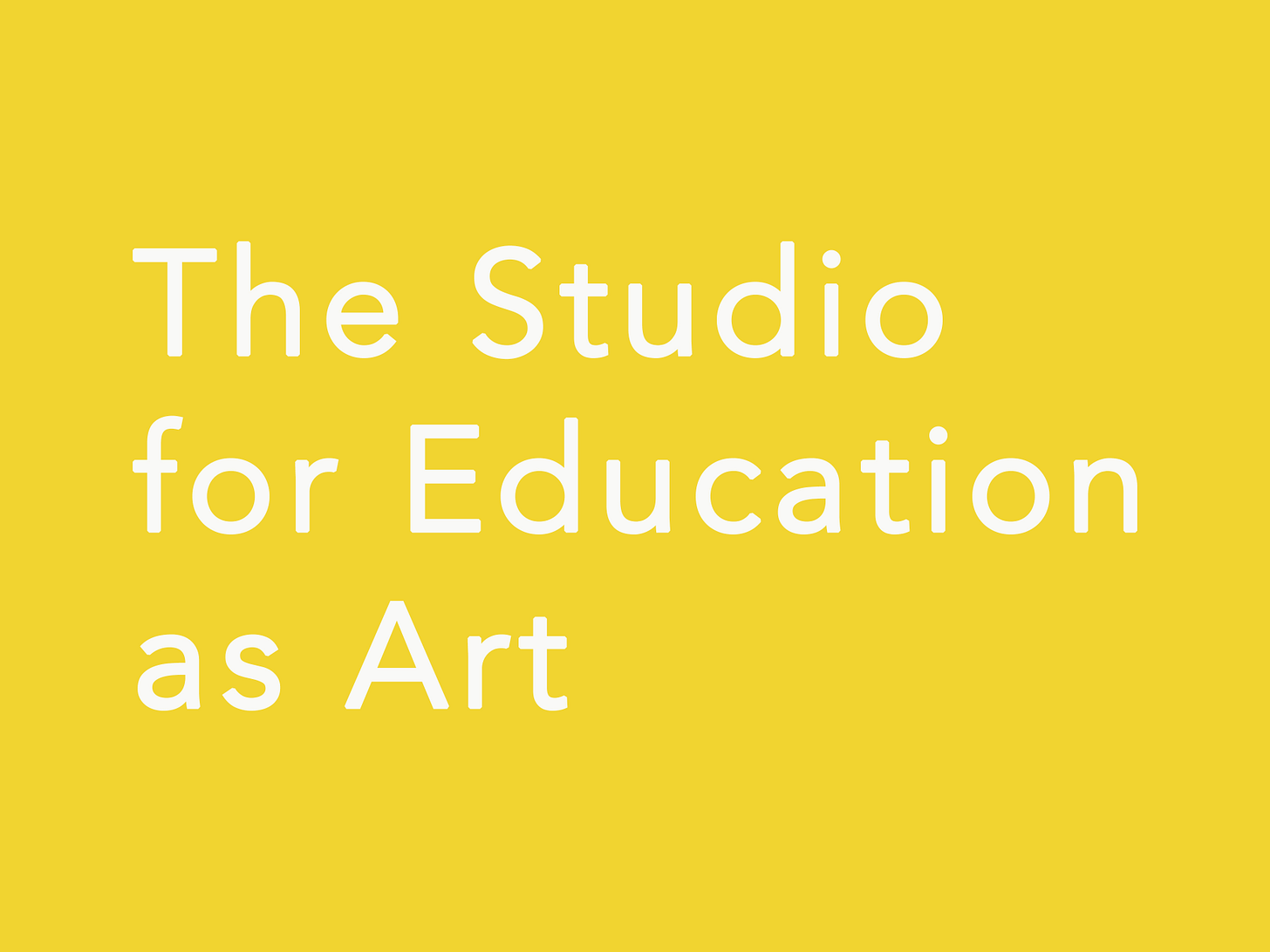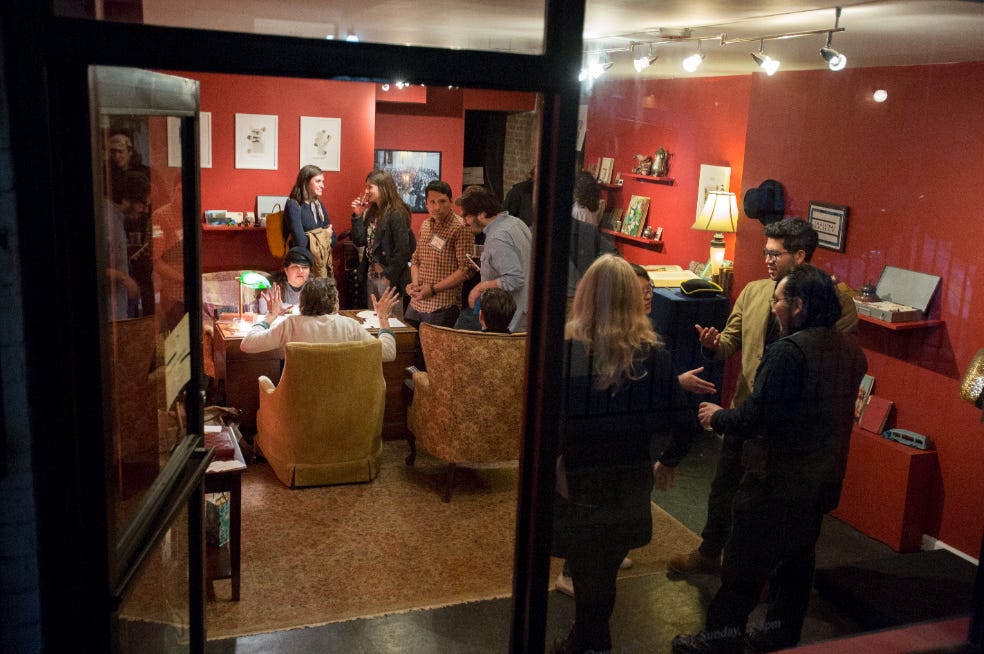The Studio for Education as Art: online course fall calendar
Dear all,
As we find ourselves in the final hours of August and transitioning to early autumn, I am thrilled to share with you the Fall class schedule for The Studio for Education as Art.
These online, intensive courses touch on a range of topics that I have covered in the past and am bringing back due to popular demand. The Educator as Artist/The Artist as Educator is an introductory class about the merging of pedagogical and process-based conceptual practice; Pedagogy, Art Practice and Humor offers an introduction to the use of play and humor in socially engaged projects, and The Public Program as an Alternative Space provides an overview of the event as an art form, considering its links to institutional critique and its adapted versions in the 21st century, with tools for developing and presenting experimental programming.
I will also offer a workshop in Spanish: Método de discursos sociales; a flashcard/visual alphabet tool I developed in 2023 to help in a research process for a project, whether it is of an artistic nature or not.
Last but not least, I will be announcing a series of in-person, single evening workshops in Brooklyn on selected topics on social practice, for those of you who might be in NYC and/or vicinity.
You can see all the season’s course descriptions below, and register for them here:
https://www.eventbrite.com/cc/the-studio-for-education-as-art-fall-courses-2024-3613749
Hope you can join me this fall!
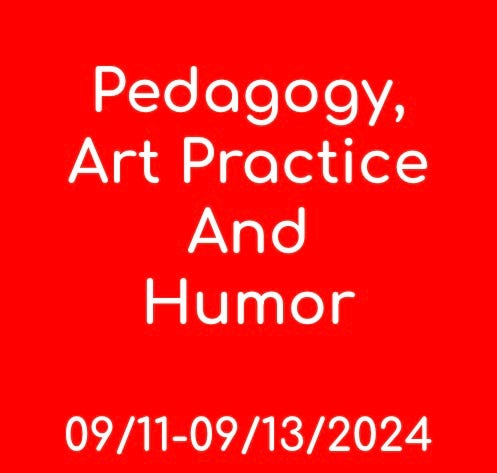
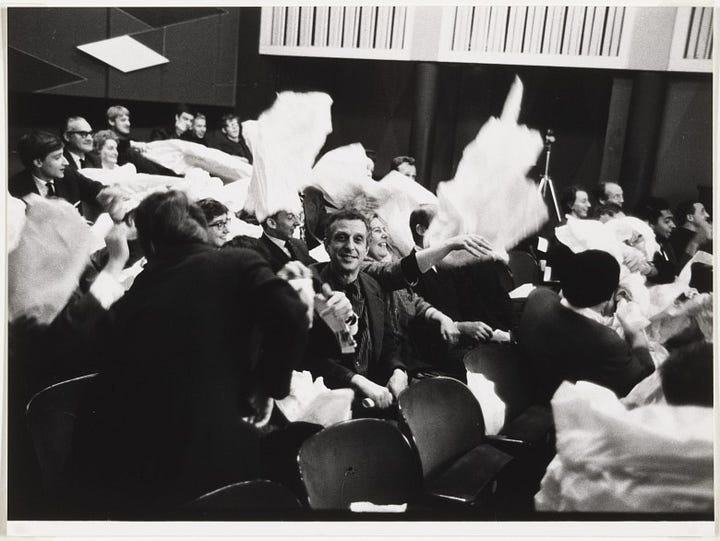
Pedagogy, Art Practice and Humor
Wednesday, September 11, 10-12 (Session 1)
Friday, September 13 , 10-1pm (Sessions 2 and 3)
https://www.eventbrite.com/e/pedagogy-art-practice-and-humor-tickets-1005214141557?aff=oddtdtcreator
From Allan Kaprow's Happenings to Fluxus' instructions, and from Rirkit Tiravanija's transformation of the gallery into a Thai cuisine dining room to Jon Rubin and Dawn Weleski's Conflict Kitchen; artistic practices since the 1960s have included public participation through play, the suspension of social conventions and interaction rituals, and the creation of new formats that occasionally invite play and in others resort to humor as strategy. In parallel to this history, pedagogy has also explored playful models of learning for adults, from the invisible theater of Augusto Boal to the experimental work that occurs in museums, universities and alternative projects throughout the world. This workshop, aimed at artists and educators, explores the rich history of these practices and offers pedagogical models that are based on humor and play to promote a critical reflection of reality. This 3-session class will include a series of readings, an analysis of terms relevant to the topic, a brief presentation of historical and contemporary examples of experimental practices, and a session dedicated to building games that draw on humor.
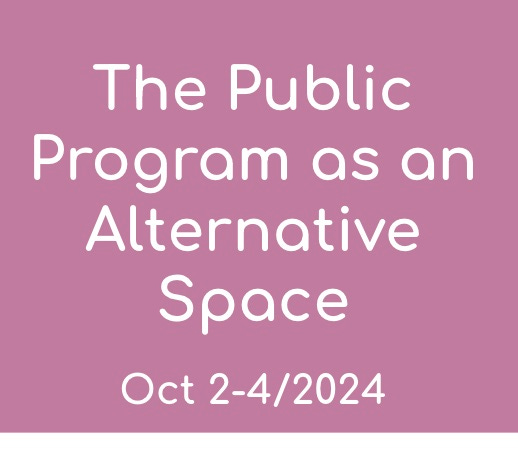
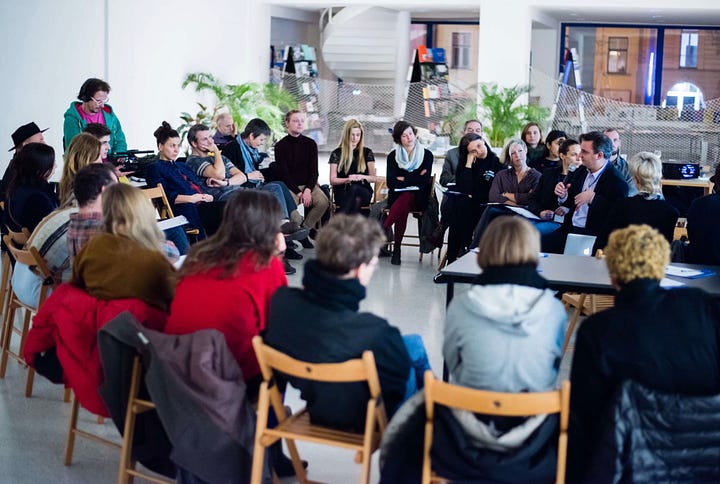
The Public Program as an Alternative Space
Wednesday, October 2, 10-12pm
Friday, October 4, 10- 1pm
A key aspect of process-based art is the structure of the live event— a conversation, lecture, soiree, dinner, cocktail hour, party or any other form of formal or informal gathering that complements, counters or replaces more static forms of art making, such as the conventional exhibition. In this three-session class we explore the subject of the public program as an artistic, conceptual and performative practice, drawing from the history of institutional critique to the ways in which it has been embraced as activism and community-building for specific causes and purposes. The class will include a series of exercises and tools drawn from theater, performance art, education, and other fields to re-energize a gathering and use it not as an accessory to an exhibition, but sometimes as the exhibition itself.
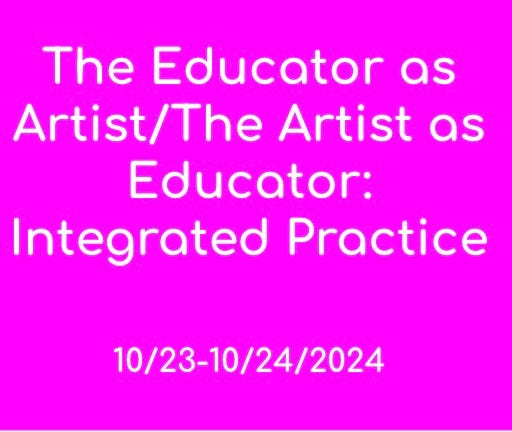
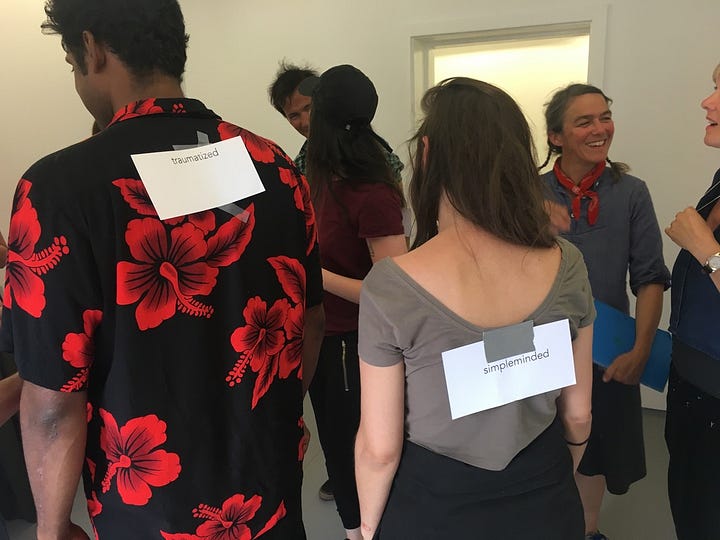
The Educator as Artist and the Artist as Educator: Integrated Practice
Wednesday, October 23 10-12pm (session 1)
Friday, October 24, 10-3pm (sessions 2 and 3)
This 3-session online course offers an introduction to the relationship between pedagogy and contemporary art practice and their potential for cross-pollination, with a focus on how you can draw from your education experience to build an artistic language. Key areas will include gaining a general understanding of what it means to education as art as opposed to art education, employing pedagogical strategies to produce art works designed to exist in both conventional and non-conventional exhibition formats, understanding the history of experimental art pedagogy and a workshop to develop project ideas and use your education practice to develop art projects.
A number of readings will be assigned to further explore the topics discussed in this class.
Método de discursos sociales- (en español). Taller para desarrollar proyectos
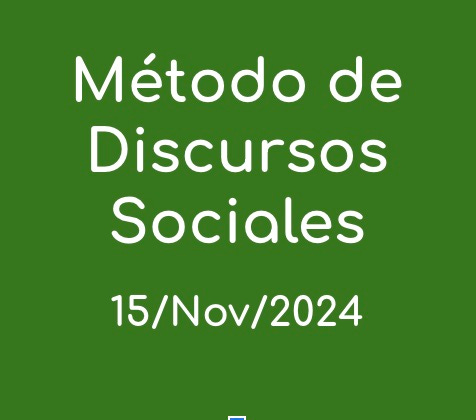
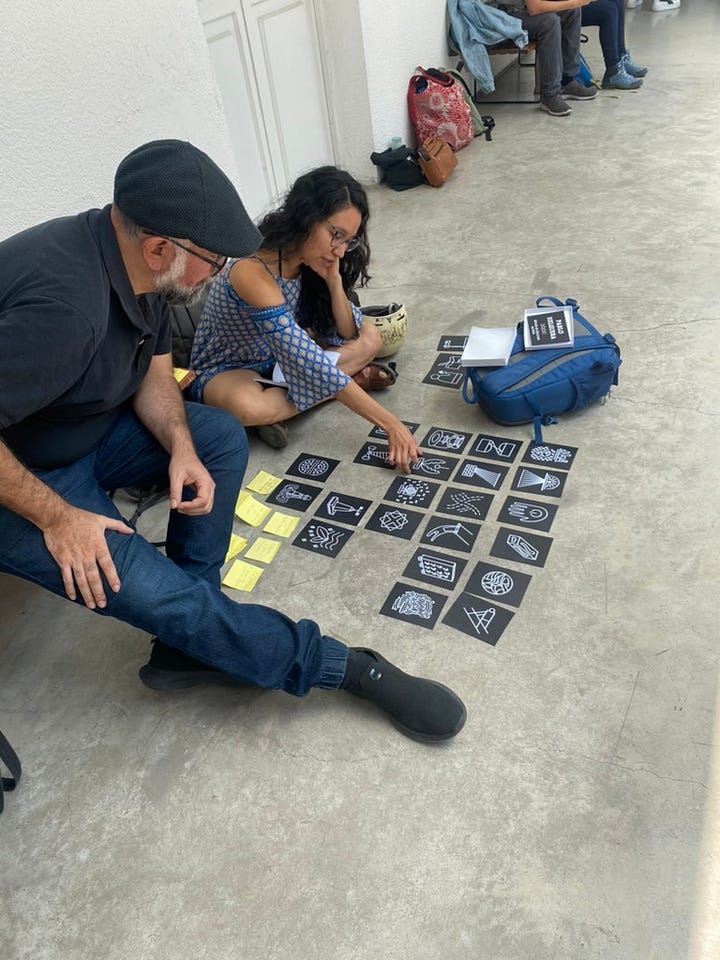
Viernes, 15 de noviembre, 2024 10-2pm hora de NY (ET)
El Método de discursos sociales es un juego de fichas pedagógicas que consiste en la creación de un sistema de alfabeto visual para ser utilizado en procesos de investigación. Las imágenes del alfabeto hacen referencia a situaciones o escenarios específicos relacionados con la comunicación, procesos históricos y figuras políticas y/o sociales arquetípicas, que ayudan a formular preguntas útiles para la investigación. El proyecto utiliza ideas transpedagógicas para la construcción del diálogo, que puede dar como resultado resultados como la redacción de un ensayo, el guión gráfico de una exposición o la hoja de ruta de un proyecto de investigación. Este taller introduce a los participatnes a las varias fichas e incluye una serie de ejercicios para aplicarlos a proyectos artísticos personales o de grupo.
Issues in Socially Engaged Art
[Location and dates TBA]
These series of one-session workshops are introductory presentations of specific aspects of socially engaged art, with a conversation on how a particular aspect of social practice has been embraced or applied, a review of past and present approaches, and a brief reflection on how each one of these could be successful applied or incorporated into your own artistic practice.
Issues in Socially Engaged Art: Hospitality
Issues in Socially Engaged Art: Forms of participation and collaboration
Issues in Socially Engaged Art: working with history

